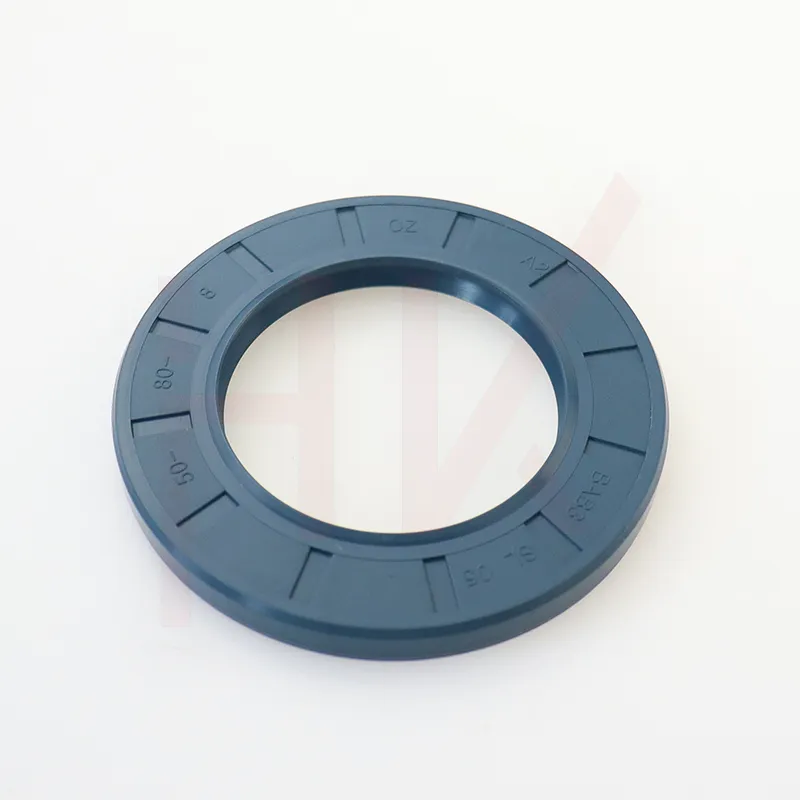डिस . 20, 2024 01:09 Back to list
oil seal for rotating shaft
Understanding Oil Seals for Rotating Shafts
Oil seals, also known as lip seals or shaft seals, play a critical role in the performance and longevity of mechanical systems involving rotating shafts. These seals are designed to prevent the leakage of lubricants while keeping out contaminants, making them essential components in various applications such as automotive, industrial machinery, and aerospace.
Functionality of Oil Seals
The primary function of an oil seal is to maintain the integrity of lubricating oil within a rotating system. As a rotating shaft turns, it can create significant challenges, including the potential for oil leaks and the ingress of dirt, water, and other contaminants. Oil seals work by creating a barrier between the shaft and the environment, using a combination of pressure and friction.
When installed properly, the oil seal's lip presses against the surface of the rotating shaft, forming a groove that traps the lubricant while allowing the shaft to rotate freely. The design typically includes a spring that maintains the lip's contact with the shaft, enhancing the effectiveness of the seal by ensuring a tight fit and preventing wear over time.
Types of Oil Seals
There are several types of oil seals available, each designed for specific applications
1. Single Lip Seals These are the most common type, suitable for low-pressure applications. They consist of a single lip that contacts the shaft, effectively sealing oil while allowing for slight motion.
2. Double Lip Seals Featuring two sealing lips, these seals are designed to provide an extra layer of protection against contamination. They are particularly useful in environments exposed to dirt or other particulates.
oil seal for rotating shaft

4. Floating Seals Floating seals are designed for applications where shaft misalignment might occur. They allow for slight movement of the seal in respect to the shaft, helping maintain contact without compromising the seal's effectiveness.
Materials Used in Oil Seals
Oil seals are manufactured from various materials, with rubber, silicone, and fluorocarbon being the most common. The choice of material depends on the application requirements, such as temperature, pressure, and the type of lubricant used. For instance, fluorocarbon seals are often chosen for high-temperature environments due to their superior resistance to heat and chemical degradation.
Importance of Proper Installation
The performance of an oil seal is heavily dependent on correct installation. An improperly installed seal can lead to premature failure, resulting in costly downtime and repairs. It is critical to ensure that the shaft surface is clean and free from damage before installation. Additionally, the right seal size must be chosen to fit the specific shaft dimensions, and proper tools should be used to avoid damaging the seal during the installation process.
Maintenance and Lifespan
Regular maintenance can prolong the lifespan of oil seals. It is advisable to periodically inspect seals for signs of wear, such as leakage or cracking. Early detection of these issues can prevent more significant mechanical failures down the line.
Conclusion
Oil seals for rotating shafts are vital components that ensure the efficient operation of machinery by preventing oil leakage and contamination ingress. Understanding the various types, materials, and installation best practices can aid in selecting the right seal for specific applications, ultimately contributing to the reliability and longevity of mechanical systems. Investing in quality oil seals and implementing proper care can lead to significant cost savings and enhanced performance in the long run.
-
The Trans-formative Journey of Wheel Hub Oil Seals
NewsJun.06,2025
-
Graphene-Enhanced Oil Seals: Revolutionizing High-Pressure Oil Sealing
NewsJun.06,2025
-
Future of Hydraulic Sealing: Advanced Intelligent TCN Oil Seals
NewsJun.06,2025
-
Don’t Let a Broken TCV Oil Seal Ruin Your Day
NewsJun.06,2025
-
Bio-Inspired Dust Seals for Better Sealing Performance
NewsJun.06,2025
-
Biodegradable and Sustainable Hydraulic Seal Materials
NewsJun.06,2025
-
Top Oil Seal Solutions for Your Industrial Needs
NewsMay.22,2025
Products categories
















